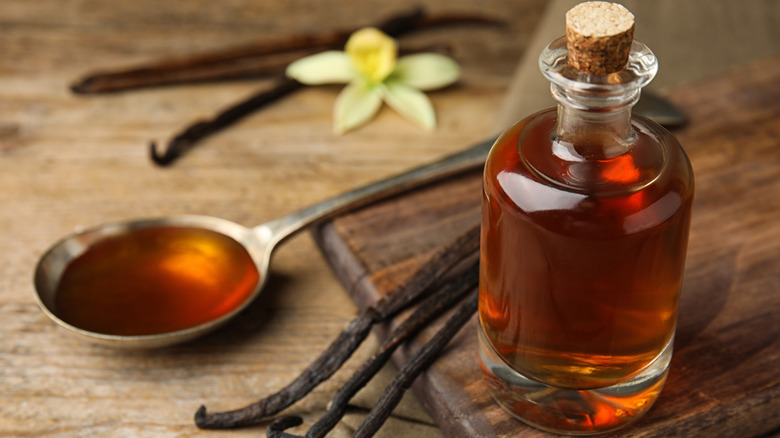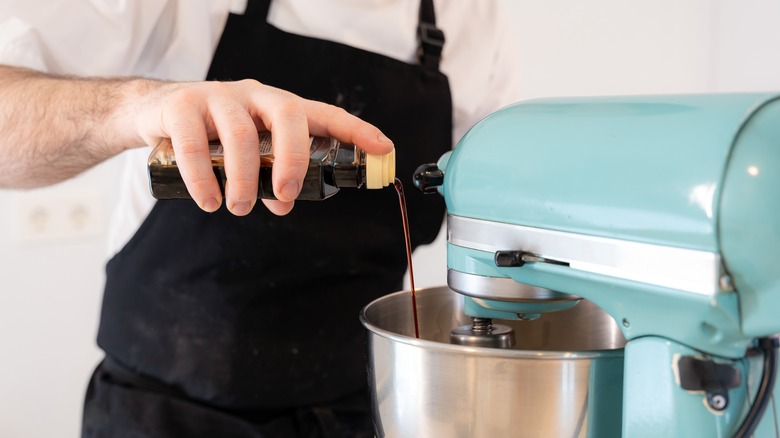Why You Should Stick To Imitation Vanilla Extract For Baked Goods
It's hard to imagine many baked goods without that classic warm vanilla flavor. From chocolate chip cookies to cakes and apple pie, vanilla extract is a staple in many desserts. However, its widespread use may have led to vanilla's underwhelming reputation. Still, that familiar vanilla taste seems necessary in so many comforting recipes.
Imitation vanilla extract is more widely used than pure vanilla extracted from the bean, because it's much easier to reproduce an artificial version of the vanillin compound in a lab than to spend months harvesting authentic vanilla pods from orchids in places like Madagascar. Imitation vanilla doesn't have a massive price tag, either, making it a more economical choice for home bakers. While seeking out the highest quality and most authentic ingredients typically leads to the best results, that's surprisingly not the case with vanilla in baked goods.
The truth about the pure vanilla is that it's quite delicate, with subtle floral notes, hints of wood, and warm spice. Interestingly, these fragile flavors don't stand up to high oven temperatures. This is why many recipes would benefit from adding vanilla extract after your baked goods come out of the oven by incorporating it into whipped creams or frostings that don't require high heat. With the more heat-resistant imitation vanilla extract, you don't need to take any such precaution.
Pure vanilla extract isn't always superior
Imitation vanilla extract is less nuanced in its taste but has a much stronger vanilla punch that allows those sweet, toasty flavors to withstand the high heat of baking. The vanillin compound, one of the hundreds of flavor notes in real vanilla beans, is the only one that gives the synthetic version on store shelves that familiar marshmallow flavor.
While imitation extract lacks the subtleties of real vanilla, what consumers perceive as vanilla flavor shines through more than with the real deal. Therefore, the artificial flavoring makes for an excellent substitute for pure vanilla extract and is even deemed the go-to option for pastries and sweet treats by those who have put it to the test.
Beyond flavor, the affordability of imitation vanilla makes it worth favoring. While pure vanilla extract ranges in price based on location, it typically sets you back a few dollars an ounce. Alternatively, imitation vanilla flavoring costs mere pennies per fluid ounce. With this massive price difference and heat's effect on real vanilla extract's delicate flavors, it's a no-brainer that using imitation vanilla extract for baked goods is the way to go.

